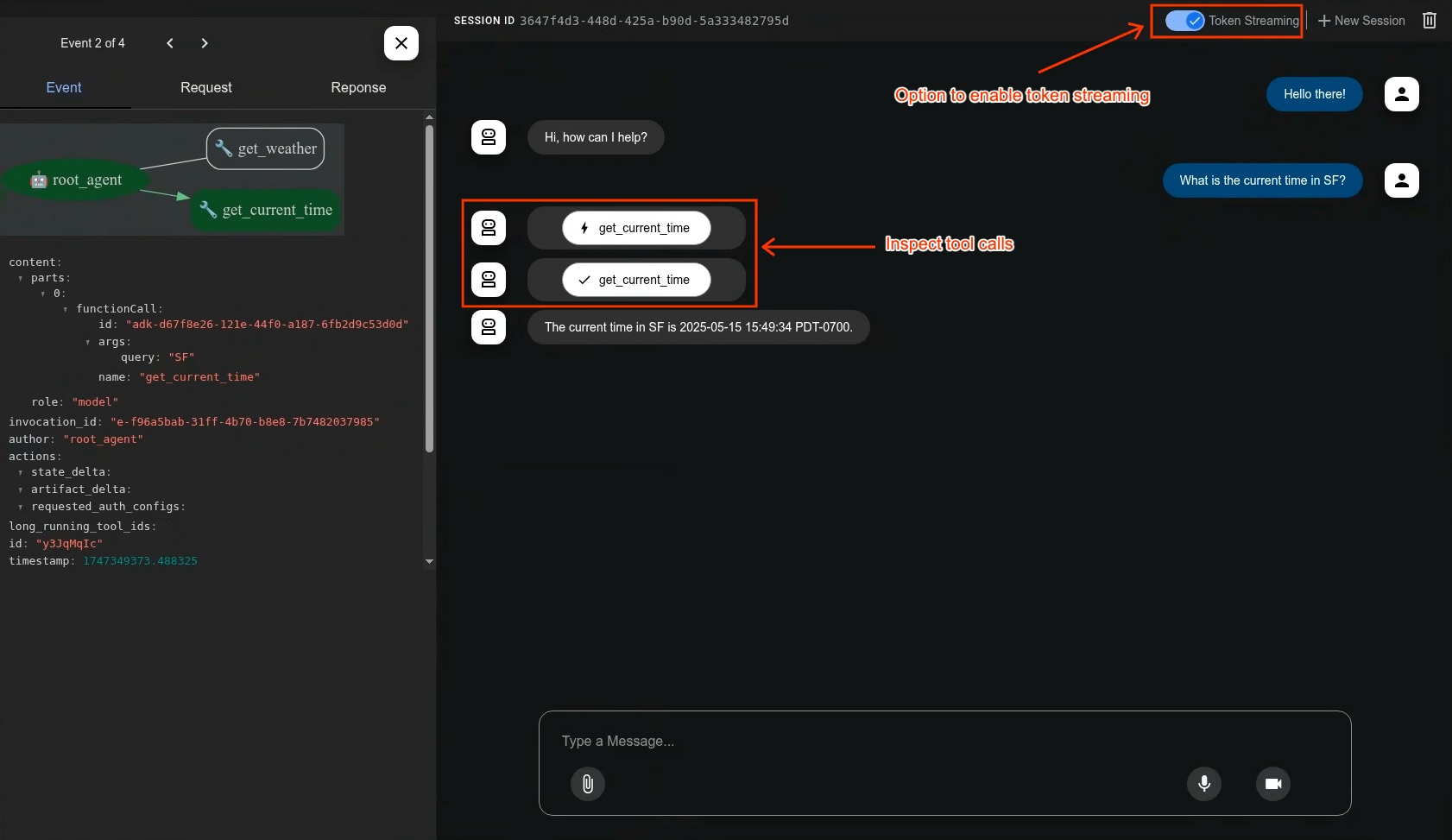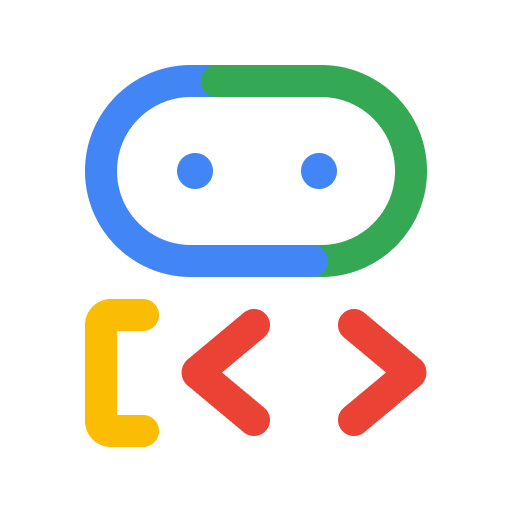Copybara import of the project: -- a4a998d5418af47a4f263823810e8ab85a9ae4d6 by 魏超 <nneverwei@gmail.com>: fix(cli): Disable auto-reload feature on Windows system Fixed the issue caused by the auto-reload feature when running the CLI tool on Windows system. By detecting the operating system type, the auto-reload is disabled on Windows system to avoid potential errors: When mcp is asynchronously loaded, it will enter the _make_subprocess_transport NotImplementedError logic due to uvicorn reload=True in fastapi. -- 46c9bb600e4530d3f9c22369c4a99774efa024c9 by 魏超 <nneverwei@gmail.com>: add an option in the CLI to enable or disable the reload feature. So users(esp. windows) can disable this if they come across the '_make_subprocess_transport NotImplementedError' bug on windows. COPYBARA_INTEGRATE_REVIEW=https://github.com/google/adk-python/pull/415 from nneverwei:win-subprocess-NotImplError-with-mcp fbb9ab03350bb0a98769cf1a4cf930983ba9fa78 PiperOrigin-RevId: 756360981
Agent Development Kit (ADK)
<html>An open-source, code-first Python toolkit for building, evaluating, and deploying sophisticated AI agents with flexibility and control.
Important Links: Docs & Samples.
</html>Agent Development Kit (ADK) is a flexible and modular framework for developing and deploying AI agents. While optimized for Gemini and the Google ecosystem, ADK is model-agnostic, deployment-agnostic, and is built for compatibility with other frameworks. ADK was designed to make agent development feel more like software development, to make it easier for developers to create, deploy, and orchestrate agentic architectures that range from simple tasks to complex workflows.
✨ Key Features
-
Rich Tool Ecosystem: Utilize pre-built tools, custom functions, OpenAPI specs, or integrate existing tools to give agents diverse capabilities, all for tight integration with the Google ecosystem.
-
Code-First Development: Define agent logic, tools, and orchestration directly in Python for ultimate flexibility, testability, and versioning.
-
Modular Multi-Agent Systems: Design scalable applications by composing multiple specialized agents into flexible hierarchies.
-
Deploy Anywhere: Easily containerize and deploy agents on Cloud Run or scale seamlessly with Vertex AI Agent Engine.
🚀 Installation
Stable Release (Recommended)
You can install the latest stable version of ADK using pip:
pip install google-adk
The release cadence is weekly.
This version is recommended for most users as it represents the most recent official release.
Development Version
Bug fixes and new features are merged into the main branch on GitHub first. If you need access to changes that haven't been included in an official PyPI release yet, you can install directly from the main branch:
pip install git+https://github.com/google/adk-python.git@main
Note: The development version is built directly from the latest code commits. While it includes the newest fixes and features, it may also contain experimental changes or bugs not present in the stable release. Use it primarily for testing upcoming changes or accessing critical fixes before they are officially released.
📚 Documentation
Explore the full documentation for detailed guides on building, evaluating, and deploying agents:
🏁 Feature Highlight
Define a single agent:
from google.adk.agents import Agent
from google.adk.tools import google_search
root_agent = Agent(
name="search_assistant",
model="gemini-2.0-flash", # Or your preferred Gemini model
instruction="You are a helpful assistant. Answer user questions using Google Search when needed.",
description="An assistant that can search the web.",
tools=[google_search]
)
Define a multi-agent system:
Define a multi-agent system with coordinator agent, greeter agent, and task execution agent. Then ADK engine and the model will guide the agents works together to accomplish the task.
from google.adk.agents import LlmAgent, BaseAgent
# Define individual agents
greeter = LlmAgent(name="greeter", model="gemini-2.0-flash", ...)
task_executor = LlmAgent(name="task_executor", model="gemini-2.0-flash", ...)
# Create parent agent and assign children via sub_agents
coordinator = LlmAgent(
name="Coordinator",
model="gemini-2.0-flash",
description="I coordinate greetings and tasks.",
sub_agents=[ # Assign sub_agents here
greeter,
task_executor
]
)
Development UI
A built-in development UI to help you test, evaluate, debug, and showcase your agent(s).

Evaluate Agents
adk eval \
samples_for_testing/hello_world \
samples_for_testing/hello_world/hello_world_eval_set_001.evalset.json
🤖 A2A and ADK integration
For remote agent-to-agent communication, ADK integrates with the A2A protocol. See this example for how they can work together.
🤝 Contributing
We welcome contributions from the community! Whether it's bug reports, feature requests, documentation improvements, or code contributions, please see our
- General contribution guideline and flow.
- Then if you want to contribute code, please read Code Contributing Guidelines to get started.
📄 License
This project is licensed under the Apache 2.0 License - see the LICENSE file for details.
Preview
This feature is subject to the "Pre-GA Offerings Terms" in the General Service Terms section of the Service Specific Terms. Pre-GA features are available "as is" and might have limited support. For more information, see the launch stage descriptions.
Happy Agent Building!


